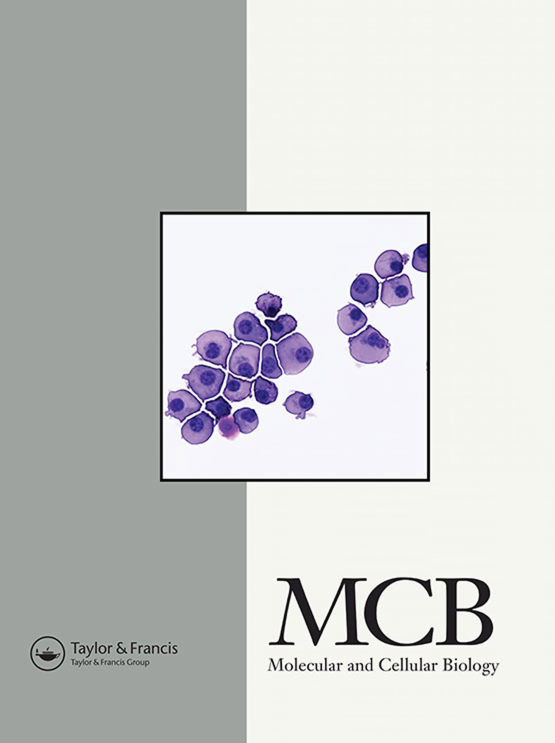Submit a Manuscript to the Journal
Molecular and Cellular Biology
For an Article Collection on
Genome Organization, Integrity, and Expression
Manuscript deadline
31 October 2024

Article collection guest advisor(s)
Prof. Sukesh R. Bhaumik,
Southern Illinois University School of Medicine
[email protected]
Genome Organization, Integrity, and Expression
The packaging of DNA into chromatin plays a crucial role in controlling gene expression by regulating access to the underlying DNA sequence. Modifications in chromatin structure (i.e., histone modifications and nucleosome remodelling) can influence the accessibility of DNA to transcription factors and RNA polymerase, thereby impacting gene expression. Disruptions in chromatin structure due to DNA damage can lead to chromosomal abnormalities and translocations, which may impair transcription and cause aberrant gene expression. These abnormalities are strongly linked to various diseases, including cancer and aging-related disorders. Cells employ a variety of DNA repair mechanisms to maintain genomic integrity in the face of intrinsic and extrinsic factors that induce DNA damage. These mechanisms ensure the fidelity of DNA replication and prevent the accumulation of mutations that could contribute to disease development. There is a complex interplay between transcription, chromatin structure, and DNA repair processes. DNA damage and repair factors can modulate chromatin structure and transcriptional activity, while transcription and chromatin modifications can influence the efficiency and fidelity of DNA repair. Thus, transcription, chromatin structure and DNA repair are not mutually exclusive processes, but rather highly coordinated events to regulate genome organization, integrity and expression.
Dysregulation of these coordinated events of genome organization, integrity, and expression is strongly associated with various diseases. Understanding of the detailed regulatory mechanisms underlying these processes and their cross-talks could lead to the development of novel therapeutic strategies for disease treatment and prevention. Further, by elucidating principles governing these processes, researchers can gain insights into basic biological mechanisms with implications in diagnosing diseases, biotechnology, personalized medicine, and synthetic biology.
Therefore, there is a growing number of studies on genome organization, integrity, and expression and their interplay towards understanding how genetic information is stored, maintained, and utilized by cells for cellular processes and organismal development. In this special issue, the following timely and emerging topics will be covered.
- Metabolic regulation of chromatin, gene expression and genome integrity.
- Non-coding RNA regulation of chromatin, gene expression and genome integrity.
- Phase separation in regulation of chromatin, gene expression and genome integrity.
- Enhancers in regulation of gene expression and cell fate.
- Ubiquitin-proteasome system regulation of chromatin, gene expression and genome integrity.
- New post-translational modifications in regulation of chromatin, gene expression and genome integrity.
- R loops in chromatin regulation, gene expression and genome integrity.
- Emerging relationships among chromatin, transcription and DNA repair.
Sukesh R. Bhaumik, Ph. D., currently serves as a Professor and University Distinguished Scholar in the Department of Biochemistry and Molecular Biology at Southern Illinois University School of Medicine, USA. His research is focused on understanding transcriptional regulation, mRNA processing and export, chromatin dynamics, and DNA repair. His seminal discoveries have contributed to the molecular mechanisms underlying gene expression and genome maintenance, with implications for human health. In addition to his research endeavors, Dr. Bhaumik serves on the editorial boards of several scientific journals, including Molecular and Cellular Biology, Journal of Biological Chemistry, DNA repair, and has guest-edited special issues of DNA Repair, Methods, BBA-Gene Regulatory Mechanisms, and Gene, thus contributing to the dissemination of scientific knowledge in his field. He earned his Ph. D. degree from the Tata Institute of Fundamental Research (TIFR) in India, and carried out his postdoctoral research at the University of Massachusetts Medical School in USA.
Prof. Bhaumik declares no conflict of interest.
Benefits of publishing open access within Taylor & Francis
Global marketing and publicity, ensuring your research reaches the people you want it to.
Article Collections bring together the latest research on hot topics from influential researchers across the globe.
Rigorous peer review for every open access article.
Rapid online publication allowing you to share your work quickly.
Looking to Publish your Research?
Find out how to publish your research open access with Taylor & Francis Group.
Choose open accessSubmission Instructions
All manuscripts submitted to this Article Collection will undergo desk assessment and peer-review as part of our standard editorial process. Guest Advisors for this collection will not be involved in peer-reviewing manuscripts unless they are an existing member of the Editorial Board. Please review the journal Aims and Scope and author submission instructions prior to submitting a manuscript.